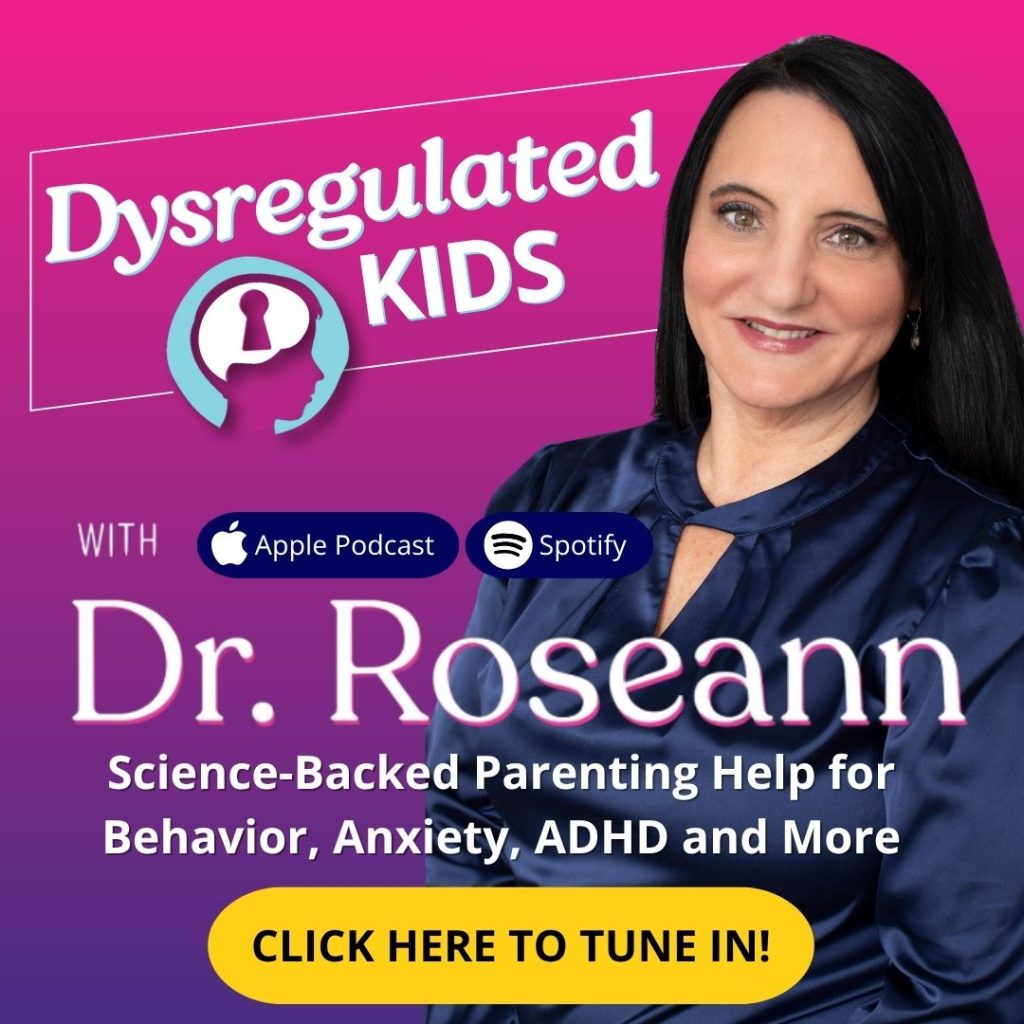Estimated reading time: 10 minutes
Some days, it feels like your child’s emotions are on a rollercoaster—and you’re strapped in right beside them. One moment they’re calm, the next they’re melting down over something small. You’ve tried routines, calming strategies, even changing sleep habits… but have you ever considered how much food could be influencing their ability to self-regulate?
The Nervous System Diet isn’t a fad or a quick fix—it’s a science-backed approach to eating that uses nutrition as a daily tool to help the brain stay balanced. When we feed the brain what it needs, we give our kids a fighting chance to handle life’s stressors without slipping into fight-or-flight mode.
In this complete guide, you’ll learn:
- What the Nervous System Diet is and why it matters
- Which foods help calm a dysregulated brain
- The 8 brain nutrients every child needs
- How to adapt meals for picky eaters
- How to use food to reduce anxiety and improve focus
- Sample daily plans you can actually stick to

What Is the Nervous System Diet and Why Does It Matter?
The Nervous System Diet is a nutrition plan designed to feed the brain the building blocks it needs for optimal emotional regulation, focus, and stress resilience. Instead of focusing only on calories or weight, this approach looks at how food influences the autonomic nervous system (ANS)—the part of your body that controls stress responses, mood stability, and the ability to return to calm after being upset.
Why it matters for kids with dysregulation:
- Poor nutrition can spike inflammation, which disrupts brain signaling.
- Nutrient gaps can slow down neurotransmitter production (think: less serotonin and dopamine).
- Blood sugar crashes can make meltdowns more frequent and intense.
When you fuel the nervous system well, behavior starts to change—not because you’re “managing” it, but because the brain is functioning better.
How Does Nutrition Affect the Nervous System?
The brain may only weigh about 2% of the body, but it uses 20% of the body’s energy. That means every bite counts.
Here’s how food impacts regulation:
- Neurotransmitter production: Proteins supply amino acids that make calming and focusing brain chemicals like serotonin, dopamine, and GABA.
- Inflammation control: Omega-3 fats and antioxidants reduce neuroinflammation, which is linked to mood swings and brain fog.
- Blood sugar stability: Balanced meals prevent crashes that can trigger irritability and anxiety.
- Gut-brain connection: Probiotics support healthy gut bacteria, which communicate directly with the brain.
What Are the Best Foods for a Calm, Regulated Brain?
A regulated brain starts with nutrient-rich, anti-inflammatory foods. These aren’t just “healthy” in the general sense—they directly give the nervous system the fuel it needs to stay steady, think clearly, and recover quickly from stress. For kids prone to dysregulation, these foods can make the difference between a full-blown meltdown and a moment of calm.
Top Nervous System-Supporting Foods and How They Help
| Food Category | Specific Foods | Benefit |
|---|---|---|
| Healthy fats | Salmon, chia seeds, walnuts, olive oil | Build brain cells, reduce inflammation |
| Magnesium-rich foods | Spinach, pumpkin seeds, almonds | Calm the nervous system, improve sleep |
| Protein | Eggs, chicken, lentils, Greek yogurt | Boost neurotransmitters for mood/focus |
| Complex carbs | Quinoa, oats, sweet potatoes | Stabilize blood sugar, steady energy |
| Polyphenols | Blueberries, green tea, dark chocolate | Protect brain cells, support memory |
| Probiotics | Yogurt, kefir, sauerkraut | Support gut-brain connection |
Marcia, mom of a 10-year-old with anxiety, started making a morning smoothie with spinach, banana, and flaxseed. Within two weeks, her son’s after-school meltdowns dropped dramatically.
Read more: Stress-Reducing Foods: Nervous System Support Through Nutrition

Essential Brain Nutrients Every Child Needs
A calm, focused brain doesn’t happen by accident—it’s built from the nutrients we feed it every single day. These key vitamins, minerals, and fatty acids are the raw materials your child’s nervous system needs to stay balanced. Without them, emotional regulation becomes an uphill battle, focus drifts, and stress responses kick in faster.
Key Nutrients for Calm, Focus, and Emotional Regulation
| Nutrient | Benefit | Top Foods |
|---|---|---|
| Omega-3s | Improve focus, reduce inflammationSalmon, sardines, chia seeds | Salmon, sardines, chia seeds |
| Magnesium | Calm nerves, reduce anxiety | Spinach, pumpkin seeds, avocado |
| Zinc | Regulate neurotransmitters | Oysters, beef, cashews |
| Vitamin D | Boost mood, brain growth | Salmon, egg yolks, fortified dairy |
| B vitamins | Support energy, neurotransmitters | Eggs, leafy greens, poultry |
| Amino acids | Build dopamine, serotonin | Turkey, eggs, nuts |
| Iron | Deliver oxygen to brain | Beef, lentils, spinach |
| Antioxidants | Protect brain cells | Blueberries, citrus, nuts |
How Can I Use Food to Reduce Stress and Anxiety in My Child?
What your child eats doesn’t just affect their body—it directly influences their mood, energy, and stress response. Highly processed, sugary foods cause rapid spikes and crashes in blood sugar, which can leave the nervous system on high alert. Over time, these swings make it harder for kids to cope with everyday frustrations and transitions.
Making small, strategic swaps can help keep their brain in a steady state, so stress hormones don’t run the show.
Remove: Soda, candy, pastries, and highly processed snacks
Replace: With nutrient-dense options that won’t spike blood sugar
Add: Calming teas like chamomile before bed
Tip: Pair protein with healthy fats at every snack to help kids stay even-keeled
Read more: Stress-Reducing Foods: Nervous System Support Through Nutrition

How Does Intermittent Fasting Impact Brain Health in Kids and Teens?
While fasting can help adult brains reduce inflammation, children should not fast without medical guidance. A gentle approach like a 12-hour overnight eating window can help stabilize blood sugar and improve sleep in older teens.
Read more: Intermittent Fasting for Brain Health: ADHD, Anxiety & Cognitive Benefits
What Role Does Protein Play in Focus and Emotional Regulation?
Protein is more than just fuel for muscles—it’s the raw material your child’s brain uses to make neurotransmitters like dopamine, serotonin, and GABA. These brain chemicals are essential for attention, motivation, and staying calm under stress. When kids don’t get enough protein, they may be more irritable, have trouble concentrating, and tire more quickly—making emotional regulation harder.
Easy protein wins:
- Greek yogurt with berries
- Turkey and cheese roll-ups
- Peanut butter on apple slices
Tip: Aim to include a protein source at every meal and snack to keep your child’s energy and mood steady throughout the day.
Read more: Essential Guide to the ADHD Diet: Foods to Eat and Avoid
How Do I Support a Picky Eater’s Nervous System Health?
Picky eating isn’t just a mealtime frustration—it can create real gaps in the vitamins, minerals, and healthy fats the brain needs to regulate emotions. Over time, these nutrient shortfalls can make dysregulation worse, leading to more frequent meltdowns, anxiety, or focus struggles. The goal isn’t to force big changes overnight, but to gently expand your child’s comfort zone with food.
Strategies that work:
- Pair familiar foods with a small serving of something new – This builds trust and slowly increases variety.
- Involve kids in meal prep – Kids are more likely to try foods they help make.
- Blend greens or seeds into smoothies – A simple way to sneak in extra nutrients without changing the taste.
A dad in our program started adding spinach to his son’s favorite strawberry smoothie. Over time, he doubled the greens without resistance.
Read more: Psychology of Picky Eating: Family Nutrition Solutions
Sample Nervous System Diet Daily Plan
| Time | Meal | Nervous System Focus |
|---|---|---|
| 7:30 am | Eggs with spinach, whole grain toast | Protein + magnesium |
| 10:00 am | Blueberries + almonds | Antioxidants + healthy fats |
| 12:30 pm | Chicken, quinoa, roasted vegetables | Balanced macros |
| 3:30 pm | Greek yogurt with flaxseed | Omega-3s + probiotics |
| 6:00 pm | Salmon, sweet potato, broccoli | Omega-3s + complex carbs |
| 8:00 pm | Chamomile tea | Calming ritual |
Brain Science Spotlight
Recent research from the University of Illinois found kids with higher omega-3 levels had better attention and emotional regulation. Dr. Naiman Khan, lead author in Nutritional Neuroscience, explains:
“Omega-3 fatty acids are essential for neuronal communication and reducing inflammation, which impacts mood and cognitive control.”
For your family: Add salmon, chia seeds, or flaxseed several times a week to help kids handle transitions with more ease.
Dr. Roseann’s Therapist Tip
One of the biggest surprises for parents is how much food choices can shape behavior. Over the past 30+ years, I’ve seen small, consistent nutrition tweaks transform kids’ moods, focus, and stress tolerance. Don’t try to change everything at once—start with one doable swap.
Try this today: Replace sugary snacks with a protein + healthy fat combo (like cheese and fruit).
Why it works: Stable blood sugar keeps the nervous system from overreacting to stress.
Remember: You’re building lifelong habits, not chasing perfection.

Your Next Steps Toward a Diet for Calming the Nervous System
A nervous system-friendly diet isn’t about restriction—it’s about fueling the brain with the nutrients it needs to stay balanced. The right foods can help stabilize blood sugar, reduce inflammation, and support neurotransmitter production, giving your child’s brain the foundation for calmer emotions, sharper focus, and better stress tolerance.
The key is choosing foods that work with your child’s nervous system, not against it—paired with daily regulation strategies that keep those benefits going strong. This isn’t about a quick fix; it’s about creating a sustainable, nourishing routine that supports long-term emotional regulation.
Getting started can feel overwhelming—that’s why I created the Natural Solutions Quick Start Guide. Inside, you’ll get my science-backed framework for calming the brain, plus a step-by-step plan to choose the foods and lifestyle changes that actually work for your child’s unique needs.
With the right tools and guidance, you can stop guessing, start making confident decisions, and finally see progress in your child’s mood, focus, and behavior. Get the guide now and take the first step toward a calmer, more connected home.
FAQs About Nervous System Diet
Does the Nervous System Diet work for adults too?
Yes—while this guide is designed for children, the same nutrition principles benefit adults.
Can supplements replace whole foods?
Supplements can help fill gaps, but whole foods should be the foundation.
How long before I see changes in my child?
Most families notice small changes within 2–4 weeks of consistent dietary shifts.
Citations:
Costa, P. C. T., de Luna Freire, M. O., de Oliveira Coutinho, D., Godet, M., Magnani, M., Antunes, V. R., de Souza, E. L., Vidal, H., & de Brito Alves, J. L. (2024). Nutraceuticals in the management of autonomic function and related disorders: A comprehensive review. Pharmacological research, 208, 107368. https://doi.org/10.1016/j.phrs.2024.107368
Dabravolskaj, J., Patte, K. A., Yamamoto, S., Leatherdale, S. T., Veugelers, P. J., & Maximova, K. (2024). Association between diet and mental health outcomes in a sample of 13,887 adolescents in Canada. Preventing Chronic Disease, 21, E187. https://doi.org/10.5888/pcd21.240187
Vejrup, K., Hillesund, E. R., Agnihotri, N., Helle, C., & Øverby, N. C. (2023). Diet in Early Life Is Related to Child Mental Health and Personality at 8 Years: Findings from the Norwegian Mother, Father and Child Cohort Study (MoBa). Nutrients, 15(1), 243. https://doi.org/10.3390/nu15010243
Dr. Roseann is a mental health expert in Self-Regulation who frequently is in the media:
- Healthline Understanding Self-Regulation Skills
- Scary Mommy What Is Self-Regulation In Children, And How Can You Help Improve It?
- The Warrior Parent Podcast It’s Gonna Be OK! Changing Behaviors and Responses (And The Magic of Magnesium)In Your Family with Dr. Roseann Capanna-Hodge
Always remember… “Calm Brain, Happy Family™”
Disclaimer: This article is not intended to give health advice and it is recommended to consult with a physician before beginning any new wellness regime. *The effectiveness of diagnosis and treatment vary by patient and condition. Dr. Roseann Capanna-Hodge, LLC does not guarantee certain results.
Are you looking for SOLUTIONS for your struggling child or teen?
Dr. Roseann and her team are all about science-backed solutions, so you are in the right place!
©Dr. Roseann Capanna-Hodge










